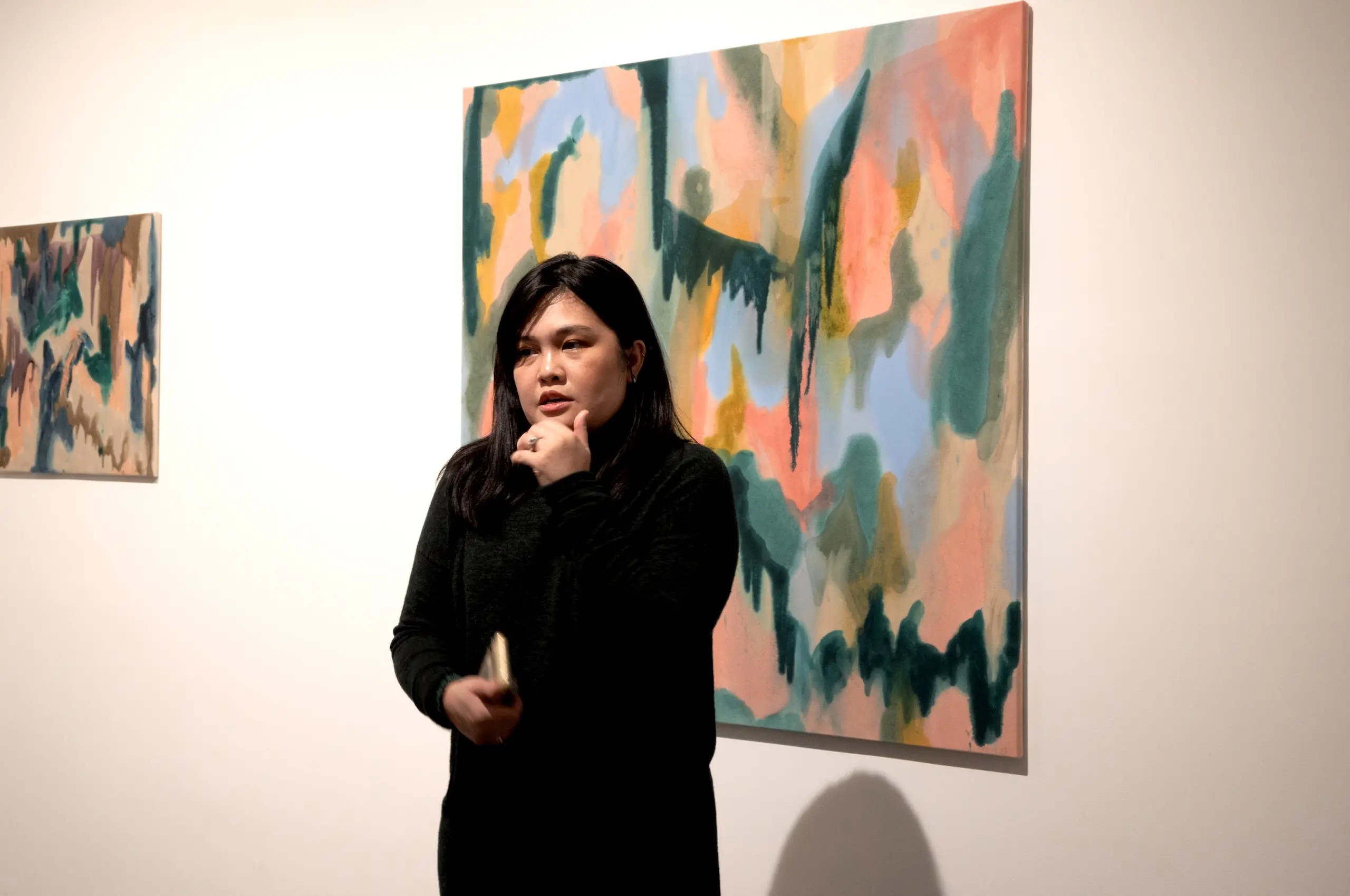It’s nothing new. Earlier in March, the internet was ablaze as netizens argued for and against trans women celebrating Women’s Month. And while the month draws to a close with International Transgender Day of Visibility on Monday, March 31, debates about trans women’s place in women’s spaces will continue as they unfortunately always have, without resolution.
This year’s debate came about after trans content creator Jamie Casiño said on TikTok, “‘Pag sinabi kong ‘Happy Women’s Month,’ kasama ang mga trans [doon] because transwomen are women.”
Because of the statement, Casiño quickly gained the ire of other influencers. Content creator and former beauty queen Angelique de Leon responded with her own video, where she said trans inclusion “invalidates the struggles of cis women” like gender pay gaps, periods, and breastfeeding.
@angeliquethelion Mother is awaaaakkkeee
♬ original sound – Angelique De Leon
“You would never know the feeling of — your whole life, your whole entire life — matatakot kang lumabas ng bahay dahil babae ka… At least once in your life, you never had that fear,” said de Leon, who claimed to be an LGBTQ ally in the nine-minute TikTok video.
“That’s what the month is for: discussing every single challenge, all the stereotypes you wanted to break as a natural born female,” she added.
Intersections and Complexities
For film critic and culture journalist Lé Baltar, the argument for trans exclusion from women’s spaces does not take into account the complexities of womanhood.
“I know some would argue that it’s an encroachment of biological women’s spaces and rights,” Baltar told Rolling Stone Philippines. “But that argument is just facile and vacuous, especially when there are struggles that inextricably link us, especially when both communities suffer from broader structures that always try to define and limit what womanhood should be.”
Similarly, Bahaghari Chairperson Reyna Salinas said the idea that a woman’s value is tied to her ability to reproduce is outdated.
“Departing from our old understanding of womanhood, which ties the value of a woman to her reproductive parts, we have come to understand that the vagina is not what makes a woman,” she told Rolling Stone Philippines in a separate interview.
“We work with the basic principle that transgender women are women in full. That means they rightfully belong in women’s spaces, celebrations, and struggles, including Women’s Month.”
Baltar and Salinas both emphasized the intersection of trans women’s struggles and cis women’s struggles. Baltar pointed out that trans women and cis women struggle with other forms of oppression, like systemic discrimination, misogyny, and gender-based violence. Salinas likewise said that all women “face the same harrowing brand of discrimination in the workplace, in education, in healthcare, and in public services.”
“Both cis and trans women get paid less for the same type of work, more often get passed on for promotions, are more likely to be terminated and rejected from employment,” said Salinas. They are also “significantly more likely to experience physical, verbal, and sexual abuse in their lifetime, compared to men.”
The Philippine Statistics Authority reports that 19,228 Filipino women aged 15 to 49 reported cases of physical or sexual violence in 2022, but the report did not state if any of these cases were reported by trans women. Statistics on trans women are far more difficult to come by, but the United Nations Development Programme said that in 2023, the Philippines ranked 8th worldwide in terms of transgender people murdered.
Despite these shared struggles, not all trans women believe that they can and should celebrate Women’s Month.
Trans content creator Johnry Almonte echoed de Leon’s sentiments in her own TikTok video. “We already have Pride Month. As a trans woman myself, we celebrate that,” she said. “This Women’s Month, I stand in solidarity with biological women. You don’t have to include us.”
@johnreyslife Replying to @jjaa Here’s my opinion 🤍 #fyp ♬ original sound – johnreyslife
Almonte also expressed her frustration with the debate, saying, “Instead of standing in solidarity with each other, we’re arguing and not being united against the real problem in society: corrupt government officials and patriarchy.”
In the comments, cis women praised Almonte. A TikTok user wrote, “This! We can celebrate for them. I celebrate it for my mom, sisters, friends, and relatives who are women for their struggles and all. Again, we can celebrate for them but not for ourselves.”
In response to this, Baltar said that the divide in the trans community can be explained by “respectability politics.” “They expect you to behave [in] certain ways, and you’ll get rewarded with some illusion of safety and security.”
She added that the growing conservative sentiment in the U.S. carries over to the Philippines, which is cause for alarm. “Now, our people, who have always been conservative when it comes to discussions on gender, are becoming more emboldened to share these vile, anti-trans sentiments,” she said.
Allyship and Activism
For Salinas, organizing is crucial to pushing for trans rights and women’s rights, even when activists and advocates in both spaces don’t see eye to eye. “Difference in beliefs between different groups is inevitable,” she said. “In fact, the principled clash of ideas is a necessary part in discerning the facts from the lies, and the truth from the facts.”
“The challenge for LGBTQ+ and women’s rights advocates is to carry out a program of widespread publicity and education,” she said. “This includes tireless dialogue and persuasion on the side of organizers, engaging the most proactive individuals so that they may be involved in winning over the opinion of the neutral or indifferent, and then creating space for awareness-raising and questions among the least aware and least informed.”
As for what allies can do, Baltar stressed that allyship is “an extension of care, empathy, and community.”
“You cannot claim to be an ally if you are not willing to accept the possibility that those values you hold so dearly, so unflinchingly, will peter out once you begin to put in the effort and equip yourself with better information,” she said.
She urged allies to embrace the discomfort of letting go of old values that might limit their capacity to care for trans people.
Asked what trans allyship really entails, Baltar said, “Recognize our right to exist and stop killing us,” referring to the slew of trans killings the country has seen in over a decade.
In 2020, former President Rodrigo Duterte granted U.S. Marine Joseph Scott Pemberton absolute pardon after he killed Jennifer Laude, a Filipino trans woman, in Olongapo City, in 2014.
Laude’s killing is only one out of many committed on the basis of sexual orientation, gender identity, and expression (SOGIE). The Fuller Project, a women-centered nonprofit news organization, reported in 2021 that at least 50 trans or nonbinary Filipinos have been killed since 2010, and that the death toll may be much higher since the Philippine National Police only logs deaths by their sex assigned at birth.
Baltar also said, “Provide us with accessible and inclusive healthcare. Let us present ourselves the way we want in the classroom. Pay and treat us right in the workplace. Let us thrive in sports, in art, in music, in movies, in drag. Pass the SOGIE Bill. Study trans history.”
“Lastly, and I think this is really important,” she said, “rally behind us and listen, and [do] not be a spokesperson for us.”







